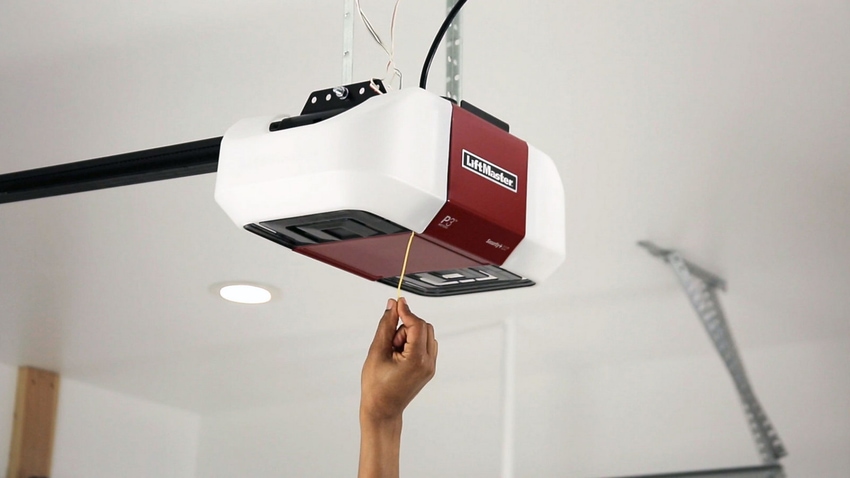Troubleshooting Common Garage Door Problems

Today's garage doors are paragons of reliability, efficiency and technological innovation. What they're not is indestructible. Even the most expensive, custom-designed door is going to manifest some issues from time to time. Why? Because the garage door weighs several hundred pounds that are being lifted and lowered by a combination of a motor, chain or belt, springs, cables, pulleys, tracks and rollers. All those things have to be working perfectly for the door to open. Also, many of today’s garage doors are part of the internet of things. Meaning they can be controlled from anywhere on earth the owner can get an internet connection. So things can go wrong. Before you call the garage door repair company, have a look at our list of common troubleshooting tips for garage door problems.
Check These Tips Before Calling for Garage Door Repair in Loveland
You can expect the garage door you have installed today to last a couple of decades. But, as is the case with all mechanical devices, you can also be sure that at some point problems are going to arise. Before you call us for garage door repair check out our list of garage door troubleshooting tips. We’ll start with the problem and then detail what could be causing it.
- The motor runs but the door doesn’t open - If the motor is clearly running but the door isn’t moving there is no power getting to the door. That means either the chain, the belt or the drive gear is broken. These are the components that transfer motor power to the door. So it’s likely you don’t need garage door opener repair. You just need one of these components replaced.
- The door is closing and reopening - If your door is closing all the way and then reopening it’s a sign that the up/down travel limit settings are off. These settings tell the door how far to go before shutting down. If the door doesn’t reach that point it will just keep running.
- The door closes part way and then reverses - This is likely a matter of the up and down pressure sensitivity being set too low. It’s important that this setting be neither too low nor too high. Too low and the door may reopen part way through the cycle. Too high and the door may not stop if something obstructs its path.
- The door opens unevenly I - Garage doors are very heavy items. In order for them to move freely and efficiently, it's vital the tracks are properly aligned. If you're noticing the door tends to stutter as it rises and falls it may be that the track is out of alignment.
- The door opens unevenly II - There are two reasons why the door may be shuddering as it rises and falls. The first is that the track or tracks are out of alignment. The other is that the tracks are dirty. All types of dirt and debris enter the garage every time the door is opened. Some of it winds up in the tracks. It’s important that they be kept clean at all times.
- One side of the door hangs lower than the other I - If the cable is too loose there’s a good chance it will slip off the drum while the door is opening or closing. Should this happen the door will likely start opening unevenly with one side seeming to drag the other after it. If you see the door behaving this way it may well be that a cable has come loose.
- One side of the door hangs lower than the other II - Garage door springs do the heavy lifting of the door. And while they’re remarkably tough and durable they will break if they get old enough. If the door is opening unevenly it’s either a case of a loose cable, or it’s a broken spring. There’s one spring for each side of the door. So if one side is lagging behind and the cables are fine it’s a broken spring.
- Lots of squeaking and squealing - When older doors open the motion is often accompanied by lots of squeaking and squealing. This can be very annoying but typically doesn’t indicate anything too terrible. Before you call for garage door repair in Boulder, CO check to see if the rollers are properly lubricated. Older, metal rollers in particular are a major source of squeaks. Jammed rollers are another common cause of squeaks and squeals.
- The door gets stuck at the turn - This isn’t a common problem but it does pop up from time to time. The door will rise but part way through the process it will grind to a halt, or slow down considerably for a moment before resuming its standard motion. This likely means that there is a bent panel or panels. As they try to make the turn from vertical to horizontal and back again the opposing forces create pressure in the track which slows down or stops the upward or downward motion. You’ll likely need to have the affected panels replaced. And the sooner the better. Allowing this to continue can ruin rollers, warp the tracks and burn out the garage door opener.
Conclusion
Some of these problems can be handled by any reasonably competent do-it-yourselfer. Others, however, will require the services of a Boulder, Loveland or Broomfield garage door repair pro. If you need someone to fix the garage door call A Better Garage Door today.